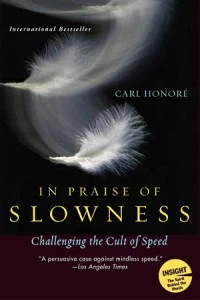Precious Bodily Fluids
-
Winter Light (Ingmar Bergman, 1962)
The first establishing shot in the film follows a subjective shot, consistent with Bergman form that emphasizes subjective experience even while thematically concerned with big ideas like God. Persons, characters, repetition, and coldness dominate the opening Eucharist scene. Much of it is shot in a long take, highlighting the lifeless and static rite being “celebrated.”…
-
Her (Spike Jonze, 2013)
Something must be a “satire” if it’s somewhere between difficult and impossible to suspend disbelief. (This is the case with that great satire, Dr. Strangelove.) With Her, the futuristic trajectory of where we are now is something a little different, since it teeters in that fearful space between satire and prophecy. Technologically, the film quits swooning over…
-
Dancer in the Dark (Lars von Trier, 2000)
Again, von Trier seems intent on punishing a women, although this is no secret to him or anyone else. But much more than Dogville or Melancholia, Dancer in the Dark seems so intent on presenting an innocent, kind, and even childlike protagonist just to destroy her as awfully and violently as possible. The film begins with abstract paintings to…
-
Dogville (Lars von Trier, 2003)
The diegesis is overtly artificial, with no pretense at realism but does something like “cinemize” the stage. Performance and mise-en-scene are highlighted; lighting, for example, changes when the narration announces that a “change of light” came over the town. This happens two times. Sounds like doors closing are audible, although no doors exist. A fast-forward…
-
The Sacrifice (Andrei Tarkovsky, 1986)
Easily among the slowest of them all. Tarkovsky’s films are few, and it’s fairly easy to mark out their shared formal features and formal progress. As long as Andrei Rublev is, its pacing doesn’t feel as slow as Stalker, Nostalghia, and The Sacrifice, the last of which plods along particularly monotonously on account of looming narrative questions during its first…
-
“In Praise of Slowness,” Carl Honoré
In Praise of Slowness: How a Worldwide Movement is Challenging the Cult of Speed, Carl Honoré This is a journalistic, well, journey along the lines of Joshua Foer’s Moonwalking With Einstein. Whereas the latter was a year-long experiment that the author took in order to investigate how memory functions and whether he could win a memory…
-
“Mind-Tricking Narratives…,” Cornelia Klecker
Cornelia Klecker. “Mind-Tricking Narratives: Between Classical and Art-Cinema Narration.” Poetics Today, Vol. 34, No. 1/2 (Spring/Summer 2013): 119-146. For my purposes, I’ll skip to the parts that relate to art cinema. Overall, Klecker lays out the various types of film narratives that deceive the viewer in one way or another. She breaks them apart in various…
-
“Exploring Art Film Audiences: A Marketing Analysis”
Chuu, Sharon et al. “Exploring Art Film Audiences: A Marketing Analysis.” Journal of Promotion Management Vol. 15, No. 1/2 (2009): 212-228. The study reveals no real surprises, mainly demonstrating by quantitative data, that “art film audiences are found to warrant marketing attention because they are more committed to movie attendance, have a more favorable attitude towards…
-
“Doing time: ‘slow cinema’ at the AV Festival,” Henry K. Miller
“Doing time: ‘slow cinema’ at the AV Festival,” Henry K. Miller, BFI Sight & Sound Miller differentiates these films (also from the titular AV Festival) from those of Hitchcock right at the outset, but later goes on to explain that it’s not necessarily a mater of editing or non-narrativity that makes these films slow. Many…
-
“‘Slow cinema’ fights back against Bourne’s supremacy,” Sukhdev Sandhu
“‘Slow cinema’ fights back against Bourne’s supremacy,” Sukhdev Sandhu, The Guardian Essay/report has to do with the AV Festival 12, a film festival in the UK that touts films that are “As Slow As Possible,” in reaction to films like The Bourne Ultimatum and Batman Begins, with average shot lengths of under two seconds. Sandhu notes that…
-
The Death of Classical Cinema, Joe McElhaney
The Death of Classical Cinema: Hitchcock, Lang, Minnelli, by Joe McElhaney McElhaney doesn’t really posit a definitive death of classical cinema (one can just imagine how the publishers wanted this title), but rather an important shift that took place within classical cinema during the so-called art-film era of the 1960s. McElhaney goes on to present the…
-
Narration in the Fiction Film, David Bordwell
“In the art cinema, for instance, shifts between ‘objective’ action and ‘subjective’ moments are often not signaled by the narration. This creates a suppressed gap which we retrospectively try to fill, as when we supply the missing ‘frames’ around the flashbacks of The Spider’s Stratagem. These suppressed gaps leap into prominence against the background of the classical…
Got any book recommendations?










